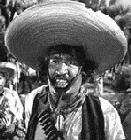Welcome to one of the most active flamenco sites on the Internet. Guests can read most posts but if you want to participate click here to register.
This site is dedicated to the memory of Paco de Lucía, Ron Mitchell, Guy Williams, Linda Elvira, Philip John Lee, Craig Eros, Ben Woods, David Serva and Tom Blackshear who went ahead of us.
We receive 12,200 visitors a month from 200 countries and 1.7 million page impressions a year. To advertise on this site please contact us.
|

|
|
RE: My journey into the blues #6 Progress?
|
You are logged in as Guest
|
|
Users viewing this topic: none
|
|
Login  | |
|

   
Mark2
Posts: 1871
Joined: Jul. 12 2004
From: San Francisco

|
 RE: My journey into the blues #6 Pro... (in reply to guitarbuddha) RE: My journey into the blues #6 Pro... (in reply to guitarbuddha)
|
|
|
I studied jazz when I was younger, played in a big band, and I think that when one is involved in chord scale relationships, b5 substitutions, and how to apply a half diminished whole tone scale in a standard, Jimi is of little help. But when you want to reach someone emotionally with a solo, he is one of the greatest. As far as blues perspective, the three Kings are, to me, much more to the point than CC or LY who were really jazz players with a strong blues influence. I love George Benson, an incredible artist, but for me Jimi was miles ahead, despite the fact he that didn't play over changes.
I wouldn't expect a dedicated jazz musician to agree. quote:
ORIGINAL: guitarbuddha
quote:
ORIGINAL: Mark2
quote:
ORIGINAL: guitarbuddha
Yeah Hendrix had a beautiful voice. He had terrific chord fills and could make the guitar sound huge with his sparse but full rhythm playing. But I have come to believe that the reason his lines don't resolve convincingly is because he is lost.
D.
Don't resolve convincingly? Are you thinking of something specific or in general? I'd consider that a minority position that couldn't be formulated from a blues perspective. I could see a jazz player feeling Hendrix lacked "education" but even Miles considered Hendrix a genius. the idea that he was somehow lost as an improviser is certainly novel in my experience.
I'm just going by what I hear. I hear him as lost but with great big cojones. There are bits of lead that I like but most of the time he loses me.
I guess it depends on what you consider a blues perspective. Lester Young never sounds lost to me. Nor Gary Davies nor Lonnie Johnson nor Charlie Christian nor Robert Johnson nor for that matter Tony Rice.
Most jazzers I know have little to no respect for Hendrix as an improvisor and considered a lot of Miles work an attempt to engage with an audience conditioned to rock music.
But these are just opinions and some of them might be based more on prejudice than listening.
If you usually find a thread through Hendrix solos that keeps you clued in then you are probably hearing something I'm not and I am missing out. And that's why I was a little irritated about Red House. I checked out a few online versions and none of them spoke to me. I get the same feeling with Frank Zappa. But not Wes Montgomery or George Benson who are unerringly surefooted.
Anyway I really really love Jimi's rhythm playing and singing, who wouldn't ?
D.
|
|
|
|
REPORT THIS POST AS INAPPROPRIATE |
Date Jun. 5 2014 19:50:24
 |
|
 New Messages New Messages |
 No New Messages No New Messages |
 Hot Topic w/ New Messages Hot Topic w/ New Messages |
 Hot Topic w/o New Messages Hot Topic w/o New Messages |
 Locked w/ New Messages Locked w/ New Messages |
 Locked w/o New Messages Locked w/o New Messages |
|
 Post New Thread
Post New Thread
 Reply to Message
Reply to Message
 Post New Poll
Post New Poll
 Submit Vote
Submit Vote
 Delete My Own Post
Delete My Own Post
 Delete My Own Thread
Delete My Own Thread
 Rate Posts
Rate Posts
|
|
|
Forum Software powered by ASP Playground Advanced Edition 2.0.5
Copyright © 2000 - 2003 ASPPlayground.NET |
8.984375E-02 secs.
|


 Printable Version
Printable Version





 ]
] 




 New Messages
New Messages No New Messages
No New Messages Hot Topic w/ New Messages
Hot Topic w/ New Messages Hot Topic w/o New Messages
Hot Topic w/o New Messages Locked w/ New Messages
Locked w/ New Messages Locked w/o New Messages
Locked w/o New Messages Post New Thread
Post New Thread